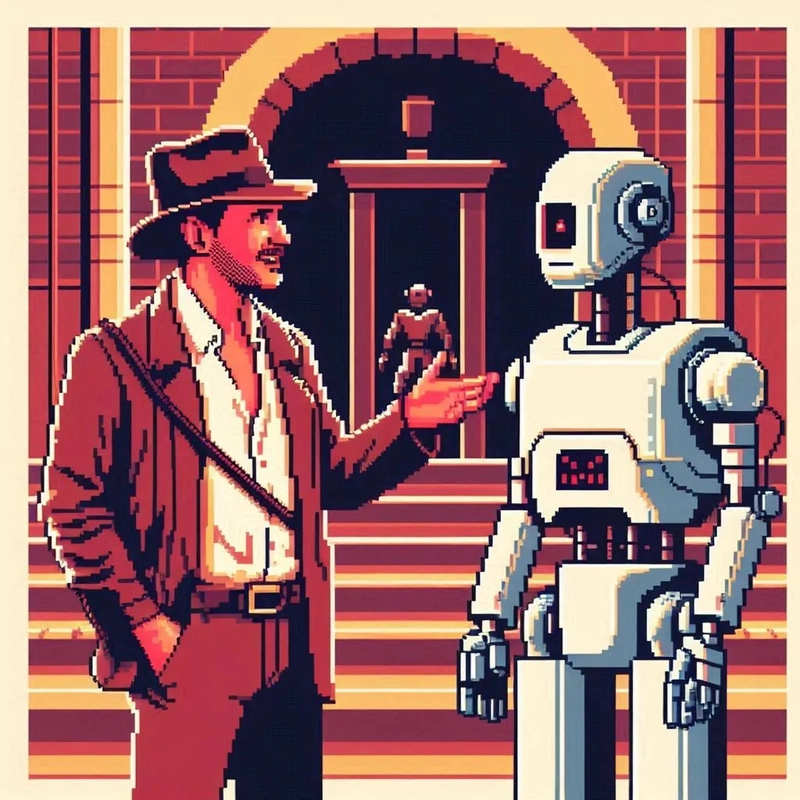The rise of artificial intelligence (AI) is reshaping the workplace, much like past technological breakthroughs. Consider nuclear fusion: it powers clean energy or fuels destructive weapons. AI, too, brings both promise and peril. Its benefits include rapid information extraction from vast texts, creating visual assets from written prompts, and answering queries in natural language across languages. Yet, it also raises concerns about ethics, intellectual property, and the reliability of its outputs.
The arrival of AI often sparks fears of job loss, reminiscent of the introduction of Microsoft Excel. A popular anecdote—though unverified—illustrates this. Before Excel, accountants manually handled calculations, with varying speed and accuracy. Excel automated these tasks, drastically reducing errors and time. Initially, many feared it would render accountants obsolete, as one person could now do the work of ten. However, Excel didn’t destroy jobs; it transformed them. By automating routine calculations, it freed accountants to focus on higher-value tasks like analysis, reporting, and strategic planning. New roles, such as data analysts and financial statisticians, emerged, demanding new skills. Excel democratized accounting, enabling non-specialists to perform complex tasks while creating more jobs than it eliminated.
AI follows a similar trajectory. It will disrupt jobs but also create opportunities. The question is: how should we respond to AI’s integration into our professional and personal lives? Resistance is a natural first reaction—change is daunting, and adapting feels uncomfortable. Yet, embracing AI, learning its capabilities, and applying it to our work can unlock significant benefits. This proactive approach allows us to evaluate AI’s impact and leverage it to enhance productivity and creativity.
I chose to embrace AI from the start, diving into its technical foundations, exploring generative AI’s potential, and experimenting with its applications. This hands-on approach dispelled fears and revealed practical use cases. Most AI tools are freely accessible, making it easy to test prompts, refine requests, and integrate AI into tasks. For example, I’ve used AI to streamline research, generate reports, and brainstorm ideas, saving time and enhancing output quality. Each interaction builds new skills, from crafting effective prompts to identifying optimal AI applications.
Adopting a growth mindset is critical in this AI-driven era. Engaging with AI fosters adaptability and hones skills that are increasingly in demand, such as critical thinking, problem-solving, and AI literacy. These abilities may not have formal names, but they grow with practice, much like a progress bar filling up with each AI interaction. Over time, these skills empower us to thrive in a rapidly evolving job market.
AI is not a hurdle to stumble over but a tool to wield. Like a walking stick on a hike, it can ease our journey if we choose to use it. Will AI eliminate jobs? Yes, some roles will vanish, particularly those involving repetitive tasks. Will it create new ones? Undoubtedly, as it already has—think AI ethicists, prompt engineers, and machine learning specialists. The challenge is ours: prepare for the climb or risk being left behind.
To thrive in an AI-driven world, start small. Experiment with free AI tools, like chatbots or image generators, to understand their strengths and limitations. Take online courses to build AI literacy. Reflect on how AI can enhance your current role—whether automating mundane tasks or augmenting creative work. Share insights with colleagues to foster a culture of adaptability. By viewing AI as an opportunity, not a threat, we can transform uncertainty into a path toward growth and innovation.
Conclusion
AI’s impact on jobs mirrors past technological shifts: disruption followed by opportunity. Like Excel, AI will automate tasks, redefine roles, and create new career paths. Embracing AI with a growth mindset—through experimentation, learning, and adaptation—equips us to navigate this change. Rather than fearing job loss, we can leverage AI to enhance our work and unlock new possibilities. The future is here, and it’s up to us to shape it. Share this article with colleagues to spark discussion, and let’s embrace AI as a tool for progress.







Right. I posed the same issue in my last post on here, about the future of AI and if AI will take our jobs. I have read articles on that new innovation might render some jobs obsolete but tend to create more new jobs than it takes away. I guess that part does not makes it so bad Still, despite loving tech incredible much and the thought of living in a high-tech society as a teen back when I was unable to see its bad sides, I do not think I would like to live in a high-tech world filled with robots, self-driving cars and that our only social interactions are online.. I know, I know, we are technically there already but I just do not find it romantic, not friendly to our human nature and not sustainable. Misunderstand me not, I love tech, I always have, but I prefer it to be a choice instead of forced upon us. I know about people who are not into neither computers nor smartphones, and they have told me that they felt smartphones with their apps forced upon them and I do not think that is okay. Tech should be a choice.
PS! I love your Indiana Jones picture!